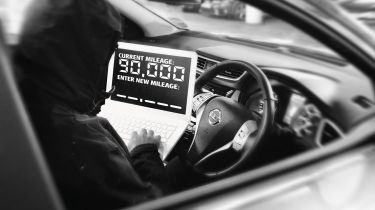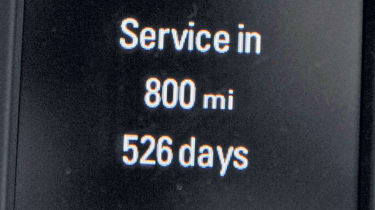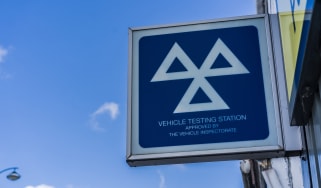Mileage correction and car clocking: is it legal?
We uncover the facts about mileage correction, and explain how you can spot a clocked car

Mileage correction – commonly referred to as car clocking – is the process of changing a car’s odometer reading to show a lower mileage than the vehicle has actually covered. As more and more cars switch to digital dashboards, the methods have become a lot more advanced, but this practice can still be used by shady car sellers in order to take advantage of unsuspecting used-car buyers.
Car clocking isn’t necessarily a criminal practice in every case, though, and there are a number of legitimate mileage-correction companies openly offering the service to customers. It can be a bit of a grey area, though, so we’re here to explain everything you need to know about car clocking, including the applicable laws and how you can spot a car that’s had its mileage adjusted — whether legally or illegally.
The equipment needed to clock a car is freely available and, by all accounts, ‘correcting’ the mileage of a car is not difficult once you have that kit. Estimates suggest that as many as 2.5 million cars in the UK could have had their mileage changed, and for used-car buyers, all those vehicles circulating with incorrect mileages is a worrying thought.
Why would a car be clocked?
Unfortunately, the most common reason that a car is clocked is for an illegitimate seller to cover up its true mileage. A higher-mileage car is expected to be more mechanically and cosmetically worn than a lower-mileage car, and its value will be less as a result. Bringing down the car’s indicated mileage can allow an unsavoury seller to ultimately get more money from an unsuspecting buyer.
In some cases, if a car has been financed or leased on a limited-mileage basis, the person responsible may decide to commit fraud by clocking the car in order to avoid any additional charges.
What’s the law around car clocking and mileage correction?
The law in the UK creates a grey area in which legitimate companies offering mileage-correction services can operate. Essentially, it is legal to alter the mileage on a car, but it is illegal to then sell that car without disclosing known mileage discrepancies to the buyer. People can also be prosecuted under the Consumer Regulation Act if it can be proved that they are traders and have clocked a car for financial gain.
The 2006 Fraud Act also provides protection for buyers. It states that if you alter goods or services and misrepresent or deceive people for financial gain or profit, you’re committing a crime. This isn’t just confined to traders, either, and can be applied to private sellers too.
Mileage-correction companies may get customers to sign a disclaimer to say they understand it’s a criminal offence to resell without informing the new owner, but there is some doubt over whether such a document would stand up in court.
The European Parliament went a step further and announced a directive that would ban firms from offering to wind back the mileage on cars and other road vehicles. Discussing the measures in 2015, EU Transport Commissioner Violeta Bulc said: “The directive explicitly stipulates that if the odometer is found to have been manipulated with the aim of reducing or misrepresenting the distance record of a vehicle, the Member State shall ensure that appropriate penalties are in place. Consequently the Commission considers that offering services linked to the manipulation of the tachometer cannot be considered as a legal activity.”
With the UK having left the EU, it is unclear whether plans exist for anything similar to be made part of UK law.
Is car clocking a big problem in the UK?
Car clocking has been on the up in the UK, with technologies to alter digital odometers in modern cars developing quickly and becoming increasingly easy to access online. The ease of access to mileage-adjustment companies is another factor – and some of them act in a more responsible manner than others.
One of the reasons for the rise in car clocking is the increasing popularity of car finance. Personal Contract Purchases (PCP) and Personal Contract Hire (PCH) deals often come with strict mileage limits, where each additional mile can be charged. This has led to some owners turning to 'mileage correction' firms that offer to dial back the odometer to dodge the financial penalties.
Another reason for the rise is said to be the fact that the practice has been made easier because more cars are fitted with digital odometers. That has allowed mileage-correction companies to start up, offering services to alter your mileage if your read-out gets corrupted.
A further reason for car clocking involves moving the mileage forward – but still with the aim of making a profit. Many large companies operate an authorised mileage allowance scheme for staff. Employees are paid for using their own car, and some may claim they’ve covered 20,000 miles a year having only done 15,000 miles, meaning that they’ll benefit from an extra payout.
Are there legitimate reasons for mileage correction?
Given what we know about the law around mileage correction, there are very few instances where mileage can be altered legally.
If a car’s odometer breaks, you’d take it to a dealership where the mileage would be recorded and logged properly. Safeguards are in place to show everything is above board. But mileage-correction companies often perform the work with little or no paperwork.

What are the other downsides of car clocking?
Aside from the legal implications, there are other potential issues that could arise with a clocked car. Modern cars rely on their mileage to give an indication of what to service and when parts need changing. When somebody clocks a car, they only modify the read-out, but most modern vehicles have lots of modules and 10 per cent of them record your mileage, so when you interfere with one, it creates a conflict with the others. It may show up if someone plugs a diagnostic tool in and would probably void a manufacturer warranty.
How to spot a clocked car
On older cars there were certain tell-tale signs that an odometer had been tampered with, but changes made by computer systems are often invisible to the naked eye. So here are some other things to watch out for:
- Check the car’s mileage on old MoT certificates and its service history. You can use our free MoT history checker to help with this.
- Stone chips on a car’s nose can indicate lots of motorway journeys and imply high mileage.
- Be wary of worn pedal rubbers or a shiny steering wheel. Watch out for seat and seatbelt wear, too.
- If it’s an older car with a nearly new gearlever, seat covers or pedals, it might be hiding its true mileage.
- Get an in-depth history check; this confirms the car against the national mileage database.
- Ask the previous owner what mileage was when they sold the car.
Check any car's MoT history in a few easy clicks with our MoT checker tool...
Find a car with the experts









